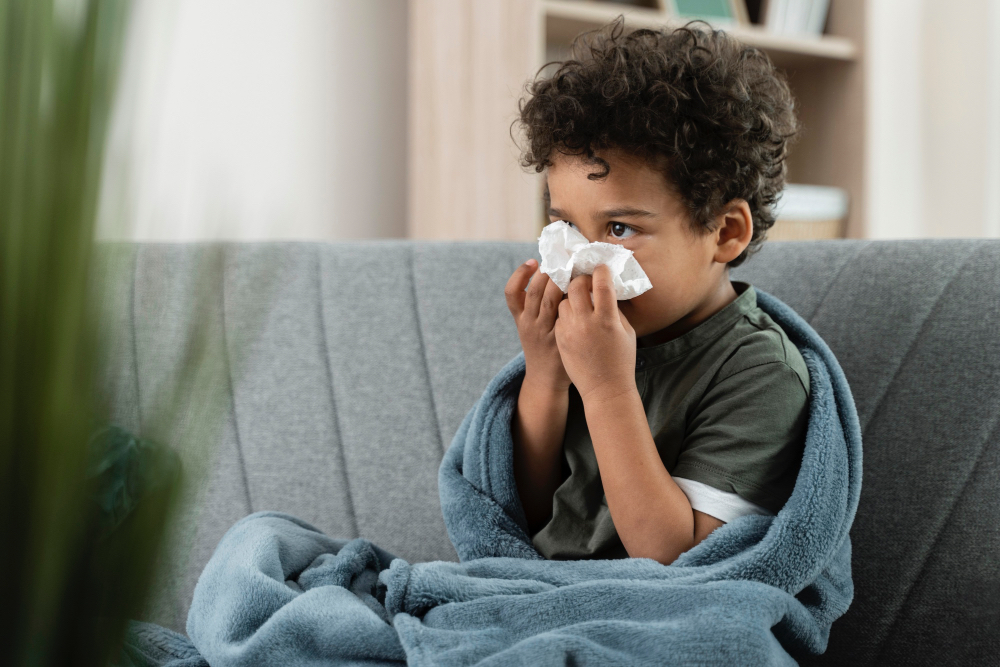Supporting Kids with Allergies and Asthma: A Parent’s Guide

Every parent wants their child to lead a healthy and happy life, free from the limitations imposed by allergies and asthma. These conditions, though common, can be challenging to manage, especially for young children. Understanding the nuances of allergies and asthma is crucial for providing your child with the best support and care.
Understanding Allergies
Allergies occur when the immune system reacts to harmless substances, such as pollen, pet dander, or certain foods, as if they were harmful invaders. In children, allergies can manifest in various ways, including skin rashes, runny nose, sneezing, or even more severe reactions like anaphylaxis.
Understanding Asthma
Asthma is a chronic respiratory condition characterized by airway inflammation, leading to wheezing, coughing, chest tightness, and difficulty breathing. Triggers for asthma attacks can include allergens, respiratory infections, exercise, or environmental factors like smoke or pollution.
The Role of Parents
As a parent, you play a pivotal role in managing your child’s allergies and asthma. Being vigilant and proactive can help prevent flare-ups and provide timely intervention when needed. This involves recognizing symptoms early, creating a safe and allergy-friendly environment at home, and working with healthcare professionals to develop a comprehensive asthma action plan.
Importance of Regular Check-ups
Regular check-ups with an asthma specialist are essential for monitoring your child’s condition and adjusting treatment. These appointments provide an opportunity to assess lung function, review medication usage, and address any concerns or questions you may have. Additionally, routine allergy testing can help identify specific triggers and inform strategies for avoidance.
Managing Allergies at Home
Creating a conducive environment for your allergic child minimizes exposure to potential triggers. This may involve simple measures such as using allergen-proof covers on mattresses and pillows, regularly vacuuming and dusting, and keeping pets out of bedrooms. Installing air purifiers can also help remove allergens from the air, providing relief for sensitive individuals.
Managing Asthma at Home
In addition to following prescribed medication regimens, parents can help manage their child’s asthma by promoting a healthy lifestyle. Encouraging regular physical activity, ensuring adequate hydration, and prioritizing sleep are all critical factors in supporting respiratory health. It is also crucial to teach children proper inhaler techniques and ensure they have access to their medication at all times.
Nutrition and Lifestyle
A balanced diet rich in fruits, vegetables, lean proteins, and whole grains can help support immune function and reduce inflammation in allergic children. Avoiding known food allergens and minimizing processed foods high in additives and preservatives is critical. Regular exercise improves overall fitness, strengthens respiratory muscles, and reduces the risk of asthma exacerbations.
Dealing with Allergy and Asthma Flare-ups
Despite best efforts, allergy and asthma flare-ups may still occur from time to time. Parents need to be prepared to handle these situations calmly and effectively. Recognizing the signs of an impending flare-up, administering medication promptly, and seeking medical assistance when necessary can help minimize the impact and prevent complications.
Educating Others
Ensuring teachers, caregivers, and other family members are well-informed about your child’s allergies and asthma is essential for their safety and well-being. Providing clear instructions on medication administration, emergency protocols, and potential triggers can help prevent accidents and ensure a supportive environment wherever your child goes.
Support Networks
Joining support groups or online communities can provide valuable emotional support and practical advice for parents navigating the challenges of raising a child with allergies and asthma. Connecting with other families facing similar struggles can help alleviate feelings of isolation and provide reassurance that you’re not alone in this journey.
Tips for Traveling
Traveling with a child who has allergies or asthma requires careful planning and preparation. Researching accommodations that cater to special dietary needs, packing sufficient medication and supplies, and familiarizing yourself with local healthcare resources can help ensure a smooth and stress-free trip for the whole family.
Building Confidence in Children
Empowering children to manage their allergies and asthma actively can boost their confidence and independence. Teaching them to recognize their symptoms, advocate for their needs, and communicate effectively with peers and adults fosters resilience and self-reliance.
Staying Positive
Despite the challenges posed by allergies and asthma, focusing on the positives and celebrating your child’s strengths and achievements is essential. Maintaining a positive attitude and fostering a supportive and nurturing environment can help your child thrive despite their health challenges.
Give Your Child the Best Care with Our Asthma Specialists
In conclusion, supporting children with allergies and asthma is a journey filled with challenges but also opportunities for growth and resilience. As parents, caregivers, and allies, we are pivotal in ensuring these young individuals have the tools, resources, and support they need to thrive despite their health conditions. By staying informed, proactive, and positive, we can create an environment where children can confidently manage their allergies and asthma.
If you seek expert guidance and support in managing your child’s allergies and asthma, don’t hesitate to contact Allergy, Asthma & Immunology Associates of Central Florida. Our team of dedicated specialists is committed to providing compassionate care and personalized treatment plans to help your child lead a healthy and fulfilling life. Contact us today to schedule a consultation and take the first step toward better respiratory
